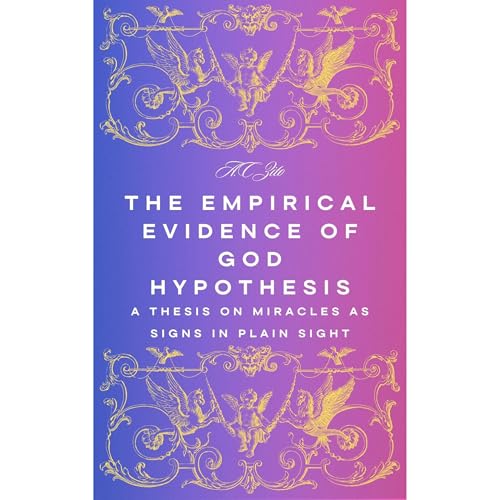
The Empirical Evidence of God Hypothesis
A Thesis on Miracles as Signs in Plain Sight
No se pudo agregar al carrito
Add to Cart failed.
Error al Agregar a Lista de Deseos.
Error al eliminar de la lista de deseos.
Error al añadir a tu biblioteca
Error al seguir el podcast
Error al dejar de seguir el podcast
Compra ahora por $3.99
-
Narrado por:
-
Virtual Voice
-
De:
-
A.C. Zito

Este título utiliza narración de voz virtual
For centuries, reports of Marian apparitions, stigmata, incorruptible saints, and Eucharistic miracles have stirred the faithful while baffling skeptics. These events are often dismissed as superstition, coincidence, or psychological phenomena. Yet, when examined closely, they present a strikingly consistent body of claims—documented across cultures, centuries, and by witnesses ranging from peasants to physicians.
This thesis asks a provocative question: Why are these phenomena not treated as empirical evidence? If science claims authority over observable reality, should not well-attested miracles—photographed, preserved, medically studied—count as data points? What happens when we apply the language of evidence, probability, and pattern recognition to events traditionally confined to faith?
The Empirical Evidence of God Hypothesis reframes miracles not as anomalies to be explained away, but as overlooked signals within the human experience. By analyzing their persistence, their physical traces, and their transformative effects on individuals and societies, this work challenges both believers and skeptics to reconsider what counts as “proof.”
In the end, the thesis proposes that perhaps the greatest blind spot in modern inquiry is not the absence of evidence for God, but humanity’s refusal to recognize the evidence already before us.


